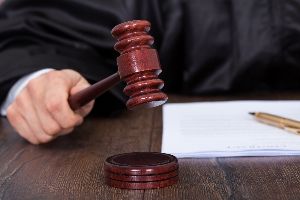FAQ About Estate Planning & Bankruptcy

Every year, more than half a million people file for bankruptcy. While filing offers a viable solution to unmanageable debt, it can also have an impact on estate plans, whether the individual designing the plans is in bankruptcy or one of their heirs is at the time of the testator's death. Learn more about this subject below with answers to common questions that bankruptcy attorneys receive.
A Guide to Estate Planning & Bankruptcy
What happens to the money in my estate if I'm in bankruptcy when I pass away?
All estate debts must be paid before your beneficiaries receive their inheritances. In a Chapter 7 bankruptcy, which eliminates most unsecured debts, the trustee will proceed as usual and sell off any non-exempt property to offset the amount your estate owes to your creditors.

Any money or property left over then goes to your heirs. In a Chapter 13 filing, in which debt is restructured into a long-term repayment plan, the estate executor will usually ask the courts to dismiss the case, convert it to a Chapter 7 filing, or request that the estate heirs assume the Chapter 13 payments.
What happens if I inherit money when I'm in Chapter 7 bankruptcy?
It's all about when you file. If a person in a Chapter 7 case receives an inheritance within 180 days of filing, the money or property must be disclosed and may be used to offset what is owed to creditors. If you receive the inheritance after the 180-day window, you can usually retain the full amount of money or property.
What about in Chapter 13 bankruptcy?
You don't have to sell your property in Chapter 13 bankruptcy. But you do have to stay current on plan payments, and the amount of those payments depends on the value of your non-exempt property. If the inherited property is non-exempt, your bankruptcy attorney will have to add its value to the amount you pay creditors. This will likely increase the amount of the payments.
During my individual bankruptcy, my spouse received an inheritance. Does that affect my filing?
In most cases, no. As long as you filed for individual, not joint, bankruptcy, and your spouse keeps the inheritance in their own name or in their own account, the inheritance is considered their personal property. The exception to this is if your spouse used inheritance money to buy you an expensive personal gift. The gift will be considered part of your bankruptcy estate and may be subject to liquidation.
When you need help navigating bankruptcy and estate planning issues, contact Cronin Skilton & Skilton, P.L.L.C. Their bankruptcy attorneys have been serving the Nashua and Charles City, IA, areas for more than 80 years. Their practice areas include bankruptcies, wills and probate, and personal injury law cases. Call (641) 435-2462 (Nashua) or (641) 228-3318 (Charles City) or visit them online to schedule a consultation with a bankruptcy attorney.
About the Business
Have a question? Ask the experts!
Send your question

